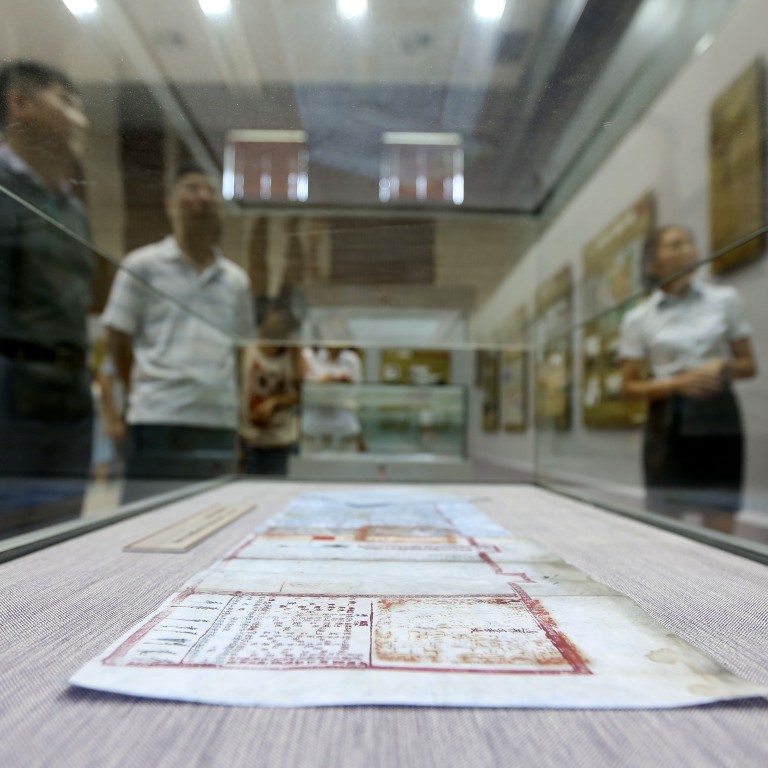
Beijing scores points as it marks 120th anniversary of defeat by Japan
120th anniversary of defeat in Sino-Japanese war is opportunity to demonise an old foe and push reforms at home, analysts say
The 120th anniversary of the first Sino-Japanese war, which falls on Friday, is drawing more media interest than in past years given the current strained ties between the two countries and Beijing's push to modernise its military.
The commemoration represents an opportunity both at home and abroad, analysts say. It allows Beijing to argue on the global stage that Japan's militarism runs deep, while it pushes a message for a domestic audience that reforms are vital to protecting the nation.
On Friday, the North Sea Fleet held a commemoration off Weihai in Shandong , where the Beiyang Fleet was based. The Beiyang was the pride of the Chinese navy at the time, but suffered heavy losses against Japanese forces.
When the war ended on April 17, 1895, little of the fleet remained and Taiwan was ceded to Japan.
Xinhua quoted a naval political commissar as saying the ceremony should stir soldiers' patriotism by reminding them of past humiliations.
Chinese media have also pointed to remarks President Xi Jinping previously made about the anniversary. Xi said in February China should remember the painful lesson of losing Taiwan to Japan, and then in June noted the special meaning the anniversary carried in the traditional Chinese calendar.

Beijing has increasingly been referring to a string of historical events to highlight old grievances. The central government held an unusually high-profile commemoration on July 7 marking the 77th anniversary of the start of China's second war with Japan.
It has also proclaimed December 13 a memorial day for the Nanking Massacre, committed by Japanese troops over six weeks beginning in 1937.
Giving prominence to such anniversaries is part of a broader domestic agenda, analysts say.
"An important aspect and end goal of achieving the Chinese dream is to rid China of past humiliations inflicted by foreign powers, and Japan perhaps did more than its share," said Yuan Jingdong, a professor at the University of Sydney Centre for International Security Studies.
Dr Benjamin Herscovitch, a research fellow with the Centre for Independent Studies, a think tank in Australia, said commemorating the war presented no downside for the Communist Party.
Japan could be portrayed as the expansionist, occupying power, while defeat was the result of an ineffective imperial government, Herscovitch said.

Historians point to many reasons for China's defeat in the war, among them corruption in the Qing government.
The Empress Dowager Cixi was said to have diverted state funds intended to further modernise the navy to the reconstruction of the Summer Palace in Beijing.
The Qing government's failure to carry out reforms and a lack of innovative thinking also left China weakened.
Professor Kerry Brown, director of the China Studies Centre at the University of Sydney, said the war revealed China's lack of progress, and modernisation became the solution to victimhood.
"That process of regeneration and strengthening continues right up to this day, and is what gives Chinese leaders so much passion when they speak or act in ways that address this history," Brown said.
Revisiting the war was not intended as a deep analysis of the past, but as a sharp reminder to China's new generation of political leaders of the perils of failing to carry out comprehensive reforms, Herscovitch said,
The message of the anniversary "dovetails perfectly with the party's economic reform agenda and anti-corruption drive".
Although the military leadership might use the occasion to argue for more resources for the PLA, it did not mean China would "seek confrontation", Yuan said.
"The political significance is greater than military intentions here," he added.

